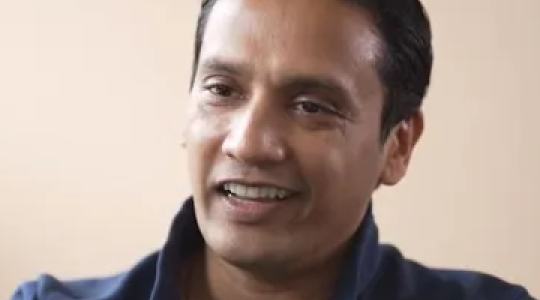Iram Hamdard, MD, is passionate about preventive medicine. It's a philosophy that guides her approach to patient care, and she believes it's the future of medicine.
"We see a lot of disease in patients that is preventable, such as diabetes, hypertension and arthritis — even in young patients," Hamdard said. "A lot of it is diet and lifestyle related, due to the way we function and eat as a society today."
Board certified in obesity medicine, Hamdard understands these conditions — and how to prevent and sometimes even reverse them. The answer lies in lifestyle changes such as healthier diet, regular exercise and stress management.
But those solutions can require discipline and may seem like hard work to patients who often assume medication will solve the problem, she said.
"That’s a mindset we have to change," she explained. "It's a matter of education to help people understand what they should be eating."
She has found that patients do respond by following her recommendations. Among diabetes patients, for example, she said, "Many initially have other conditions we treat with medication. But when we are able to bring down their weight through lifestyle changes, we're able to decrease their medications. Their diabetes and comorbidities alike are better controlled."
A family of healers
Hamdard said she sees the value of preventive and holistic medicine every day in her practice, and her passion for preventive medicine and the medical profession has deep roots.
Family members on her father's side established higher-learning institutions in both India and Pakistan, and that influenced her greatly. "Being a doctor is what I always wanted to do. I come from a family of healers and my father was a professor of chemistry," she said. "There is even a Hamdard University in India, where they teach holistic medicine and how to treat patients with plant-based medicines."
Her father received formal education in Germany, and when he returned to India he integrated his training with his family's teachings. "Growing up, if we had a cold, my father would make up a concoction of herbs — and it worked!" Hamdard said.
In fact, the elder Hamdard encouraged his daughter to specialize in gastroenterology. "He understood the importance of the microbiome. And this was 50 years ago."
As a primary care physician, Hamdard continues that tradition in her practice by helping patients establish healthy lifestyle habits that could improve their overall health outcomes.
Hamdard received her medical degree from the Medical College at Aga Khan University in Pakistan and completed an internal medicine residency at State University of New York at Stony Brook.
Hamdard and her husband, Rehan Khan, MD, opened their Colleyville practice, DFW Prompt Care, in 2006. They have two sons, one attending Duke University School of Law this fall and the other at the University of Texas at Dallas studying finance.
Making preventive care more effective
Hamdard believes that effective prevention is about ensuring that there are no gaps in patient coverage. This is especially true for those managing conditions that require ongoing care to prevent an escalation in their condition.
Keeping track of patients' prescriptions and refills, scheduling their regular checkups and vaccinations, and helping them adopt lifestyle changes are all necessary, but they require significant resources to manage. Hamdard said that can be difficult for a small practice like hers.
"The resources provided by Southwestern Health Resources help us to identify the gaps — and that helps a lot," she said.
Southwestern Health Resources (SWHR) has access to her practice's electronic medical record, so all the work required to keep track of patients' care and ongoing health maintenance needs is done for her in the background. SWHR recently added the capability of managing direct notifications to patients, a service that will further decrease the administrative burden on physician practices, Hamdard said.
"As part of SWHR, I just feel like there's an umbrella over us, and that they are watching out for us. SWHR provides resources and support to navigate through the system and get the information we need from the patients."
The value in value-based care
"I truly believe that when patients follow up with us regularly, we keep a lot of them out of the hospital, especially older patients and those with chronic conditions," Hamdard said.
That is a key value of being a part of SWHR's network. It is enabled by the connected nature provided by EMR access and technology-enabled patient care management — the heart of value-based care.
Before these capabilities existed, a single patient might visit multiple care providers and get the same tests at multiple places without the others' knowledge, Hamdard explained. "It was expensive, and one problem that SWHR is addressing through value-based care.
"They’re connecting us and allowing us to get information from the other providers, so we can all make a decision together on the patient."



